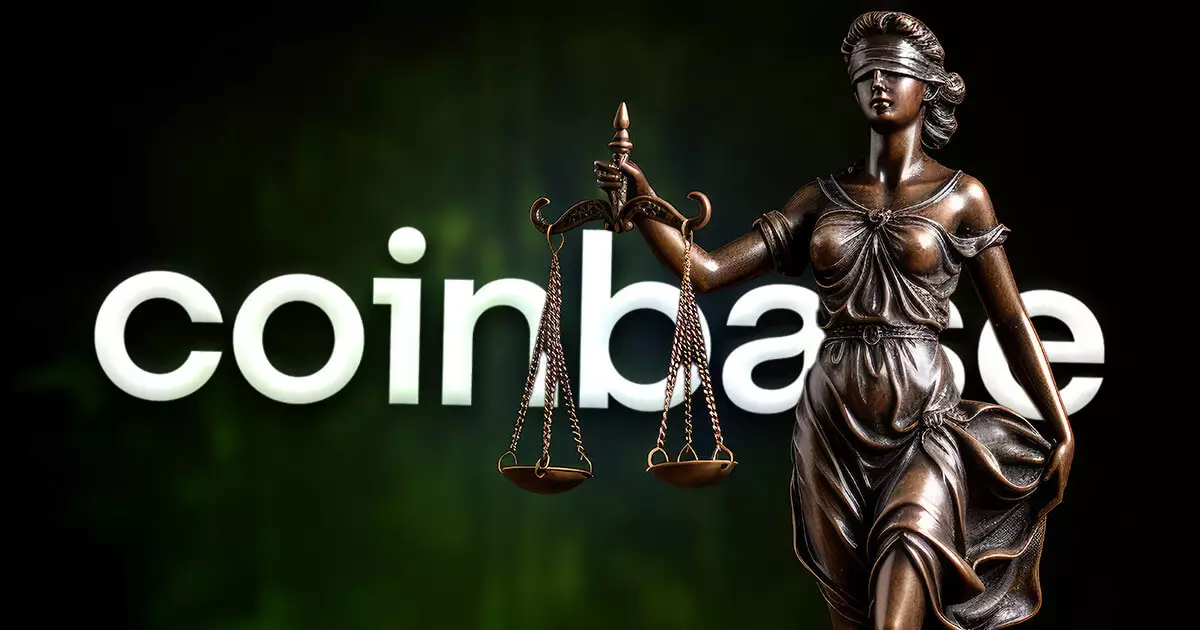The world of cryptocurrency has always been rife with competition and innovation, but recent events have drawn attention to the fragile balance between market dominance and fair play. The recent lawsuit filed by BiT Global against Coinbase, one of the largest and most recognizable cryptocurrency exchanges in the United States, serves as a critical flashpoint in this ongoing narrative. Amidst allegations of antitrust violations, the courtroom drama begins to unfold, exposing deeper issues surrounding competition, market control, and the future of decentralized finance.
BiT Global, closely associated with notable crypto figure Justin Sun, has accused Coinbase of engaging in anti-competitive practices by removing wrapped Bitcoin (WBTC) from its platform. The central argument presented by BiT Global contends that Coinbase took this action not based on valid market practices but instead to promote its own wrapped Bitcoin product, named Coinbase Wrapped Bitcoin (cbBTC). This maneuver is characterized by BiT Global as an attempt by Coinbase to leverage its existing market power to weak the competitive landscape for wrapped Bitcoin.
The lawsuit, filed on December 13, outlines a scenario where Coinbase is supposedly capitalizing on its dominant position to eliminate what it perceives as competition. This situation illustrates a complex interplay of power dynamics within the cryptocurrency industry, where incumbents can manipulate market conditions to secure their own profitability while stifling competitors.
According to BiT Global’s complaint, Coinbase’s decision to delist WBTC is steeped in ulterior motives rather than any legitimate concerns regarding listing standards. The suit highlights the irony of Coinbase allowing other less substantial assets, notably meme coins like PEPE and MOG, onto its trading platform while simultaneously axing WBTC. Such a discrepancy raises questions about Coinbase’s motivations and prompts skepticism regarding whether the removal of WBTC was truly about maintaining high standards of quality or was instead a strategic maneuver to monopolize the wrapped Bitcoin market.
BiT Global claims that this delisting will ultimately enhance Coinbase’s income through transaction fees linked to cbBTC. With several trading platforms, including Coinbase, monetizing their offerings, the extraction of costs associated with wrapping and unwrapping Bitcoin is viewed as an intentional pathway for revenue generation at the expense of fair competition.
A crucial aspect of this lawsuit is its implications for decentralized finance (DeFi), a sector that thrives on promoting financial inclusivity and innovation. BiT Global is not merely pursuing restitution for damages; it aims to protect the very essence of decentralized innovation which risks being overshadowed by the centralized control exerted by platforms like Coinbase. An unfavorable ruling in this case could potentially pave the way for further consolidation of power among a select few exchanges, contradictory to the foundational ethos of cryptocurrency which advocates for decentralization.
As BiT Global seeks to reinstate WBTC trading on Coinbase, the implications of this case extend beyond a simple corporate dispute. It highlights a growing concern within the crypto community regarding the gatekeeping actions of major exchanges. If significant players are allowed to prioritize their products over others, the competitive landscape will fundamentally change, possibly resulting in less choice and innovation for users.
As the lawsuit shifts into the legal system, it is crucial to contextualize the broader market landscape for wrapped Bitcoin assets. The rise of cbBTC signals a notable shift in user preference and institutional interest, with Coinbase recently launching this product to capture the market share formerly held by WBTC. However, despite holding a respectable market capitalization, WBTC continues to face adversity with its total supply experiencing a decline due to external pressures, including the connection between BiT Global and Justin Sun.
While cbBTC may present a sound alternative for some users, the broader repercussions of this rivalry reflect challenges faced by each asset. The ongoing uncertainties faced by WBTC serve to illustrate the sentiment in the DeFi space as users and investors attempt to navigate the nuanced dynamics of competition, trust, and governance in a rapidly evolving market.
The conflict between BiT Global and Coinbase extends beyond the scope of a standard commercial rivalry; it touches on essential questions of fair competition and the integrity of the decentralized finance space. As this case unfolds, it will serve as a critical indicator of how regulatory frameworks will evolve and how competition will be defined in the nascent world of cryptocurrency.

